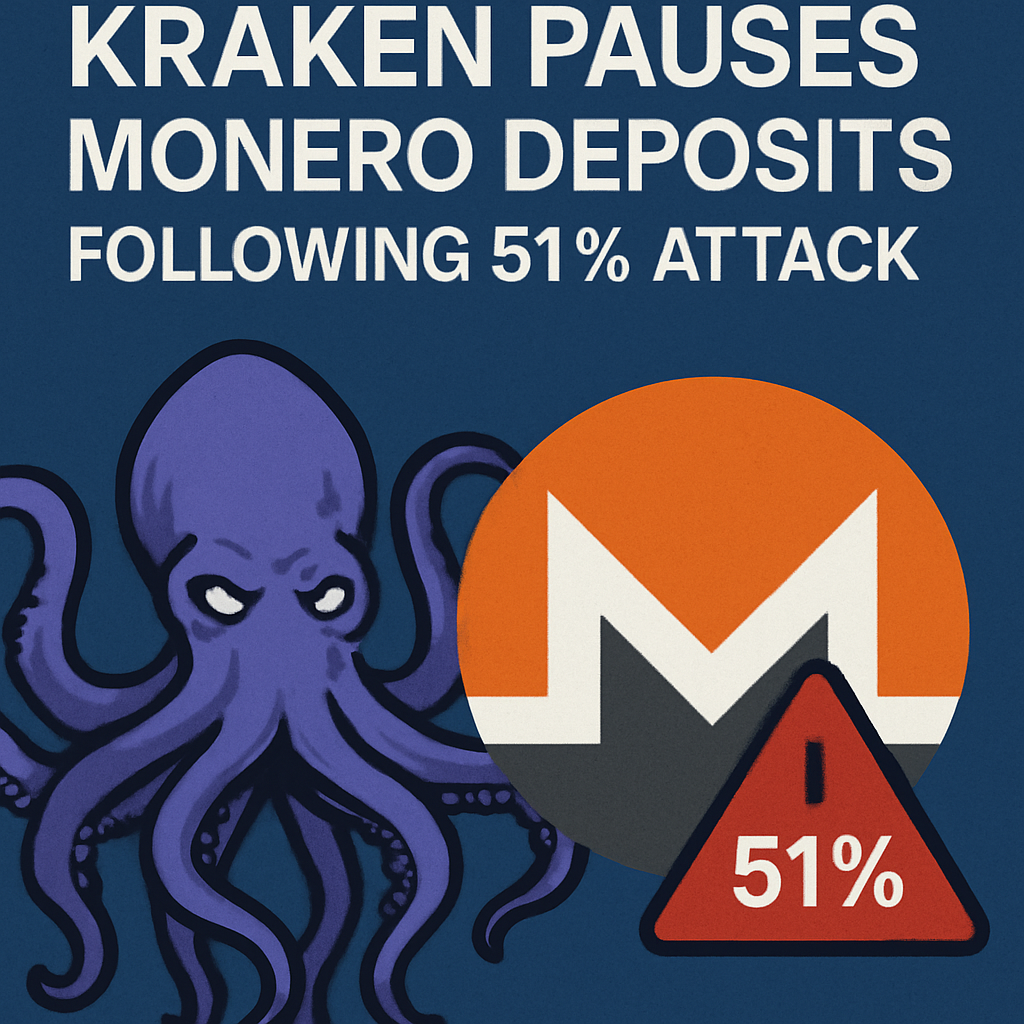Crypto exchange Kraken has taken the precautionary step of pausing Monero (XMR) deposits after the privacy-focused blockchain suffered a 51% attack. A mining pool named Qubic, operating as a layer-1 AI-focused blockchain and mining entity, achieved over 50% of the network’s total hashing power and succeeded in reorganizing multiple blocks on the Monero ledger. This level of control allowed potential double-spend attacks, undermining the fundamental security assumptions of proof-of-work consensus.
In its public notice, Kraken explained that deposit operations were suspended immediately upon detection of the hashrate concentration exceeding the critical threshold. The exchange emphasized that withdrawals and regular trading functions would continue uninterrupted to ensure user access to funds and market activity. Deposits are slated to resume only after the network returns to a more decentralized distribution of hashing power or after upgrades and mitigations are deployed by the Monero community and node operators to prevent further reorganization risks.
The incident marks a significant moment for Monero, the leading privacy cryptocurrency by market capitalization. As a protocol known for its focus on confidentiality and fungibility, Monero’s security is paramount to its value proposition. The attack prompted widespread scrutiny of mining pool centralization risks and highlighted the need for enhanced decentralization safeguards. Discussions are underway within the Monero development and governance circles to introduce stricter protocol rules, penalties for mining reorgs, and potential short-term difficulty adjustments to mitigate future attacks.
Monero community stakeholders, including independent node operators and third-party infrastructure providers, are coordinating a multi-pronged response. Proposed measures include dynamic difficulty recalibration to penalize rapid hashrate swings, integration of checkpoint servers to validate canonical chains, and collaboration with privacy-tech firms to audit mining pool behaviors. Public–private partnerships are emerging, offering bug-bounty incentivized audits of mining software and infrastructure to ensure compliance with decentralized protocol objectives.
The 51% attack against Monero also reverberated across the wider blockchain industry. Observers note that while Bitcoin and Ethereum networks have historically faced such threats, privacy coins may be more vulnerable due to lower total network hashrates. Security experts warn that similar scenarios could unfold in other proof-of-work networks with limited mining decentralization. Exchanges and custodians are reviewing deposit safeguards and risk thresholds for all assets to adapt to evolving threat models.
Kraken’s swift action reflects growing industry emphasis on proactive risk management. By isolating the affected asset and maintaining core operations, Kraken aims to protect user funds and uphold market integrity. The exchange has committed to transparent communication and will provide updates on deposit resumptions in coordination with Monero community progress. Users are advised to monitor official Kraken status channels for real-time announcements and to refrain from attempting manual bypasses or off-ledger transactions until normal operations are restored.
This event underscores the importance of robust network security and the continuous evolution of consensus mechanisms. As Monero developers and ecosystem partners rally to fortify the protocol, the broader crypto community will be watching to gauge the effectiveness of decentralized governance and technical interventions in responding to and preventing 51% threats.

Comments (0)